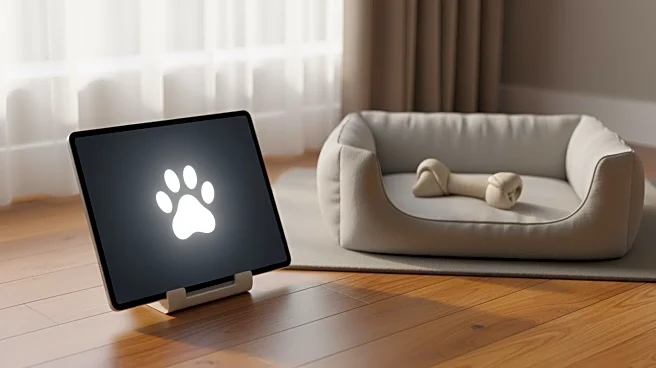What's Happening?
Amazon is offering its Echo Pop smart speaker at a significantly reduced price of $24 during Prime Day, down from its usual $39. The Echo Pop is Amazon's smallest smart speaker, designed to fit into any room without taking up much space. Despite its compact size, it delivers high-quality audio and integrates with Alexa, Amazon's voice assistant. The device supports music streaming from various services and can control smart home devices, making it a versatile addition to any household. This sale represents an opportunity for consumers to access Alexa's features at an affordable price.
Why It's Important?
The discounted price of the Echo Pop during Prime Day reflects Amazon's strategy to increase the adoption of its smart home ecosystem. By offering the device at a lower cost, Amazon aims to attract more users to its Alexa platform, potentially boosting sales of other smart home products. The widespread use of Alexa-enabled devices could enhance Amazon's data collection capabilities, allowing for improved personalization and targeted advertising. Additionally, increased adoption of smart speakers may drive innovation in voice-controlled technology, influencing the development of new applications and services.
What's Next?
As more consumers purchase Echo devices, Amazon is likely to expand its range of Alexa skills and integrations, enhancing the functionality of its smart home ecosystem. The company may also introduce new features to improve user experience and maintain competitive advantage in the growing smart speaker market. Competitors such as Google and Apple may respond with similar promotions or product enhancements to capture market share. The success of this Prime Day sale could influence Amazon's pricing strategies for future events, potentially leading to more aggressive discounts and promotions.
Beyond the Headlines
The proliferation of smart speakers raises questions about privacy and data security, as these devices continuously listen for voice commands. Consumers may need to consider the implications of having internet-connected microphones in their homes, including potential risks of data breaches or unauthorized access. The integration of voice assistants into daily life also reflects broader cultural shifts towards convenience and automation, influencing how individuals interact with technology and manage their environments.









